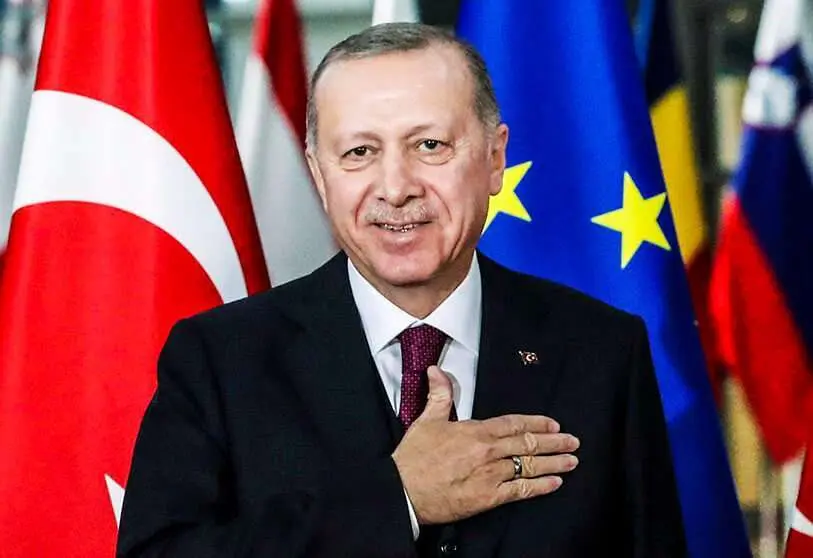Erdogan is in the Air

For the past year or so, Spain has been experiencing a cultural invasion: Turkish passion. Afternoons and evenings are marked by Turkish series that sell a Westernised image of the country: women without headscarves and with a Western appearance, dreamlike settings and moral progress (the series 'Love is in the Air' was fined because the actors appeared in a jacuzzi, something that for the Turkish Supreme Council of Radio and Television contradicted the customs and traditions of the Turkish family)1. 450 years after Lepanto, Turkey seems to have realised that the best way to subjugate the West was not through the military might that was the Ottoman Empire but through the soft power of television.
Beyond the television success of these soap operas in Spain, it is pertinent to consider other aspects of our interest in Turkey. For example, what do Turks think about Spain, and more importantly, what are the political implications of this unusual interest in Turkey for Spain?
Let us start with the first question. In July, Fahrettin Altun, Director of Communications of the Turkish Presidency, was interviewed by the newspaper El Mundo on the anniversary of the failed coup against Erdogan in 20162. In it, apart from criticising the EU for harbouring those who orchestrated the 2016 coup and for not fulfilling its part of the 2016 refugee agreement, he referred to Spain in very friendly terms: 'We see Spain as a great ally in all areas. The Spanish people understand some of the challenges Turkey faces better than other European nations."
This message has a double reading: on the one hand, we are pleased to know that Ankara has a good view of us, something that will most likely save us from having the fragile relations that France and Germany are experiencing with Turkey regarding Erdogan's comments on the treatment of Muslims in both countries and the criticism of Turkey's intervention in Syria in 2019 and the crackdown after the 2016 'putsch'. Key to good relations is the fact that Spain contributes to Turkey's security through anti-missile surveillance of the Turkish-Syrian border in the framework of NATO's Active Fence mission, most likely to the liking of Turkey, which sees that it is certain that it perceives us as a reliable ally.
However, being well regarded by Turkey can also bring problems at the diplomatic level, especially when it comes to the classic dilemma of which carries more weight: national or organisational foreign policy. I am referring to the primacy of our interests over those of the European Union, especially in terms of how to deal with the very foreseeable wave of Afghan refugees to Europe, who have to pass through Turkey. It is very likely that Ankara is not about to repeat its role as the EU's dam of containment as in 2016, something that will obviously result in friction with Brussels, which will ask Turkey to take in Afghan refugees on its territory. This is where our good relationship with Turkey comes into play. Turkey will most likely try its best to persuade EU countries that they cannot take in more refugees as they would be a burden on a country with four million Syrian refugees and between 120,000 and 140,000 Afghans in an irregular situation3. It is likely that Turkey will ask Spain to influence the EU not to turn its country into a prison for refugees who want to come to the EU. This would put us in alliance with the Central European countries of the Union, the well-known Visegrad Group, also hostile to the reception of refugees, but also in conflict with Brussels over the control of justice and LGTBIQ rights, something that would probably not be to the liking of the current left-wing coalition government, which would most likely find it uncomfortable to be in the same camp as countries that do not share the same values as those promoted by Madrid. It would also put Josep Borrell, the EU's High Representative/Vice-President for Foreign Policy, in a bad light, as it was Spain that fought to get him into the post. Complicating his task would undermine our foreign policy and most likely result in a loss of influence in EU decision-making, something that would weaken our capacity for action in trying to find a solution to foreign policy problems that are relevant to Spain, such as irregular immigration from the African continent or the fishing agreements with Morocco.
In conclusion, the Turkish passions that arouse so much interest on our screens encourage us to find out what the Turks think about Spain, especially in the political sphere. Our good relations with Turkey save us from the bad relations that other countries in our neighbourhood have with Ankara. However, they can become an obstacle to Spain's efforts to contribute to EU foreign policy, especially with Afghan refugees fleeing the Taliban. Turkey may use us as a Trojan horse for its position of not being the EU's border guardian. This would weaken our capacity to influence EU foreign policy, which would deprive us of the opportunity to influence issues that matter to Spain, such as irregular African immigration or fisheries agreements with Morocco.
References:
1 - El éxito de las series turcas en España: de Divinity a Nova y el fenómeno de `Mujer`, Diez Minutos, mayo del 2021. El éxito de las series turcas en España: de Divinity a Nova (diezminutos.es)
2 - “La UE carece de una estrategia coherente para abordar la migración”, El Mundo, julio del 2021. "La UE carece de una estrategia coherente para abordar la migración" | Internacional (elmundo.es)
3 - Un viaje de más de 3000 kilómetros sorteando muros, montañas y ladrones, El País, agosto del 2021. Refugiados de Afganistán: Un viaje de más de 3.000 kilómetros sorteando muros, montañas y ladrones | Internacional | EL PAÍS (elpais.com)

